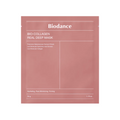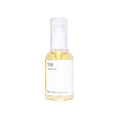Habits to Prevent and Treat Acne Prone Skin

There’s nothing more frustrating than investing in skincare products to see no results. Acne is a long-term skin condition that needs to be properly treated and that includes adjusting your lifestyle habits. We’re here to help you find out why your acne treatment isn’t working.
Cleansing is a MUST
The biggest culprit of acne is clogged pores and hair follicles with oil and dead skin cells. To prevent daily build-up, it is important to cleanse properly during the A.M and P.M. How your cleansing routine looks depends on several things:
- Is your skin dry, combination, or oily type?
- Do you wear make up?
- What climate do you live in (it matters!)

Why do these things matter you ask? Cleansers come in several forms -- balm, gel, foam, and oil to name a few. Cleansing balms and oil-cleansers are great for removing makeup which tend to be more difficult to remove. Gel cleansers clean pores gently without disturbing the moisture level or pH balance of the skin. Foam cleansers do a great job at removing excess oil but also strips away the skin’s natural proteins and oil if not specified as pH-balanced, sensitive-friendly, or gentle.
For those that wear makeup, it is essential to double cleanse at night. Wearing lip and eye makeup would extend the cleansing routine to 3 steps. There are oil cleansers specifically for removing lip and eye makeup, followed by a regular oil cleanser, then a foam or gel cleanser.
Dry skin types should avoid using foam cleansers as it may further strip your skin and cause breakouts.
In the morning, using a gel cleanser is preferred as it is gentle and you don’t have much to wash off. My favorite goes to Cosrx’s Good Morning Low pH Cleanser for its simple ingredients and ease of washing off. At the end of the day, I love to start by massaging my face with a cleansing balm, specifically Banila Co's Clean it Zero Cleansing Balm, to take off any makeup. After removing all makeup, following up with an oil cleanser will ensure there are no leftover residue. Then finishing with a gentle foam cleanser if you feel necessary to remove excess oil and prep for moisture absorption.
If you’ve noticed dirt leftover when using a toner, you are probably not cleansing properly!
Foods to Avoid and Foods to Eat More of
Preventing acne requires more than buying the right products, it requires avoiding food that causes acne. Recognizing what foods trigger breakout and what foods help treat it can help with acne. Drinking more water, eating less ice cream and deep-fried food, and consuming less alcohol are some of the common diet changes to improve the skin’s health. Understanding what your body needs and reacts to is highly important.

Healthy Habits to Pick Up
Acne prevention can be made more effective by adjusting our daily habits were not aware of. Anything that touches the face should be washed in a timely manner. Pillowcases should be washed every two weeks. Washing your hair before too much oil builds up. Taking a shower immediately after a sweaty workout. Anything that comes in contact with your face should be washed frequently.
Bottom Line
Following all these tips and adjusting your lifestyle habits, you should see significant change in not only your skin, but your overall health. If acne and breakout is still stubbornly appearing and stubbornly staying, it is best to consult with a dermatologist. No one knows your skin better than you and a certified professional!












